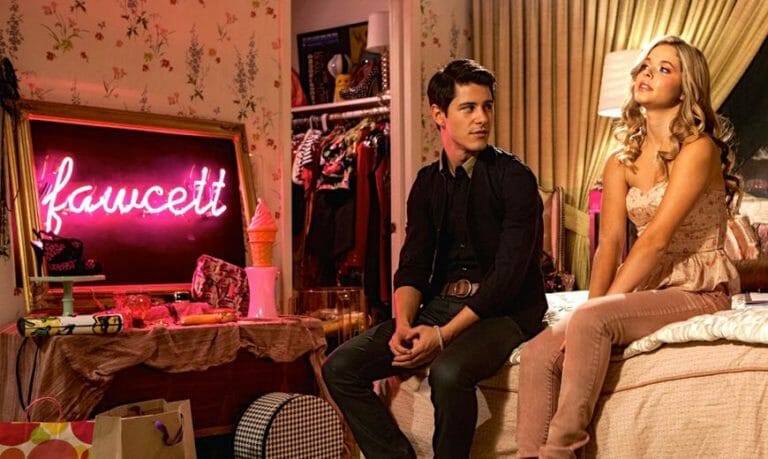By Carrie Stemke · January 9, 2015

One of the most admirable and best qualities about movies are the way in which they can be used to convey messages that are important for all of us to hear. Darren Stein’s GBF is just such a film. GBF (Gay Best Friend) tells the story of Tanner, a normal, under-the-radar high schooler who’s struggle to decide when and how to come out is ended by a series of unforeseen circumstances. Stein uses this platform to approach a variety of valuable themes, including gay best friend relationships, the way in which young women perceive gay men and the awkwardness that can exist between parents and their gay children (specifically, how to approach a son who is gay about his sexuality). Stein does this with humor and the use of Tanner, the incredibly likeable main character.
Tanner is comfortable with his sexuality, but is hesitant to decide how comfortable he is with everyone else knowing about his preferences. He’s a healthy, well-rounded teen with a nice group of friends. One of my favorite things about Stein’s portrayal of the gay characters in GBF is that he shows gay people being friends with each other, and portraying those friendships as not necessarily having a romantic element attached just because “both people are gay.” GBF doesn’t back down from taking on tough, touchy topics and talking about them in a funny, feel-good setting.
https://youtube.com/watch?v=ksd1IyErSZw
Unfortunately, these positive messages occasionally get mixed up in GBF’s vapid and sometimes exhaustingly stereotypical characters. From watching the actors play people as ridiculous as Paul Iacono’s Brent Van Camp, Andrea Bowen’s Shley, and Sasha Pieterse’s Fawcett (just to name a few, this list is by no means exhaustive), I get the impression that Stein was shooting for a gay high schooler’s version of Mean Girls. He missed the mark a bit though, and GBF would have benefitted from some restraint, instead being what could only be called a “silly” film. I was most disappointed by Natasha Lyonne’s performance. For such a great actor, she was stiff and at times downright strange in this film. The “bitchy teen” dialogue was, at times, downright painful to listen to (and Mean Girls is one of my favorite movies, so I’m chalking up the brain-cell-killing conversations to poor writing).
Overall, GBF has mostly positive qualities, but this film was hard to enjoy at times and I found myself wishing that it would take itself more seriously, and back up the importance of what it had to say.
Film Credit: School Pictures